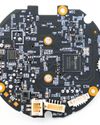
This is the fifth in an article series about mobile app development from the perspective of an embedded systems designer using React Native. The series covers Bob's experiences creating apps for both iOS and Android devices. This month he wraps up his observations on mobile app development with the React Native framework, by looking at available tools for releasing and testing an app.
One of the major obstacles for my team in developing a mobile app to support our embedded products was our fear of trying to release it for Apple products. We knew that the release had to be submitted for review by Apple. How could we keep to our schedules, when we would be tied to the availability of Apple reviewers and jumping through all their hoops? A typical development cycle would deploy just a few mobile apps several months before production of the embedded product.
But what if there were a critical bug that needed to be fixed immediately? So for years, with every proposal we made that included a mobile app interface, we restricted the proposed app to Android. We knew that we could put an Android app on a phone without going through Google for a limited release.
But an Apple release was frightening.
As you might know, Android phones are deployed from the Play Store by Google, and Apple phones are deployed from its App Store.
For the purposes of this article, I will be using "app store" for both when it applies to both, and Play Store or App Store otherwise.
Whether those fears were justified back then, I don't know, but I can assure you that review by Apple is no longer a concern.
Diese Geschichte stammt aus der December 2024-Ausgabe von Circuit Cellar.
Starten Sie Ihre 7-tägige kostenlose Testversion von Magzter GOLD, um auf Tausende kuratierte Premium-Storys sowie über 8.000 Zeitschriften und Zeitungen zuzugreifen.
Bereits Abonnent ? Anmelden
Diese Geschichte stammt aus der December 2024-Ausgabe von Circuit Cellar.
Starten Sie Ihre 7-tägige kostenlose Testversion von Magzter GOLD, um auf Tausende kuratierte Premium-Storys sowie über 8.000 Zeitschriften und Zeitungen zuzugreifen.
Bereits Abonnent? Anmelden

New TI MCUs Enable Edge AI and Industry-Leading Real-Time Control to Advance Efficiency, Safety, and Sustainability
Texas Instruments (TI) introduced two new series of real-time microcontrollers that deliver advancements to help engineers achieve more intelligent and secure processing in automotive and industrial applications.

Using Amazon Alexa to Control Custom IoT Gadgets
In part two of his article, Brian describes integrating custom IoT gadgets with Amazon Echo using emulation to receive spoken alarms. In part one, he used emulation and Arduino Cloud services as a middleman.

Holiday Hangover Hardware Hacking
Having too much cheer during the holidays? In this month's article, Colin offers a diversion from the jolly season by urging developers to retreat to the basement to brush up on hardware hacking skills. He shows how a low-cost Raspberry Pi Pico and a TP-Link Tapo C200 smart IP camera could become the next automated bird deterrent or a home automation server.

Datasheet: Microamps Per Megahertz Ultra-Low Power MCUs Minimize Current Consumption
How do chip makers differentiate if many ultra-low power MCUs on the market feature the same processor core? The peripherals and different power states offer various ways to manage current consumption down to microamps per megahertz.

Smart Home Lock Down Matter Provides Security Blanket
As more devices in the smart home connect to the Internet, they become increasingly vulnerable to outside attacks. Developers can now add the latest security measures to their Smart Home devices through Matter.

Basic Pulse Circuits
In part one of a three-part series, Wolfgang wrote how basic pulse circuits help digital circuits, such as embedded boards with ARM processors, deal with pulse trains or bursts of pulses from the outside. In Part 2, he dives into enabling flip-flops, timing parameters, and synchronization, design tasks needed to capture, detect, and filter pulses.

Building a Wi-Fi Router Watchdog
Dev created a watchdog for a Wi-Fi extender using a Raspberry Pi Pico. This monitors Wi-Fi connectivity for his smart home lighting system, which would require a reset twice a year due to rapid power interruptions.

Create Your Own PCBs with a CNC Milling Machine
Using KiCad, CopperCAM, and Candle Software

Performance Bottlenecks in Embedded Linux Solutions Analysis, Identification, and Mitigation
Good performance is a requirement for every technology, and system designers rely on operating systems to ensure fast and smooth transitions in critical applications. Fortunately, Pedro writes, the embedded Linux OS offers ways for finding, analyzing and mitigating performance bottlenecks so embedded systems can deliver the speed and efficiency that end users expect.

Renesas New RA8 Entry-Line MCU Groups Brings High Performance of Arm Cortex-M85 Processor to Cost-Sensitive Applications with Market-Leading CoreMark Performance
Renesas Electronics Corp., a premier supplier of advanced semiconductor solutions, introduced the RA8E1 and RA8E2 microcontroller (MCU) groups, extending the industry's most powerful series of MCUs.